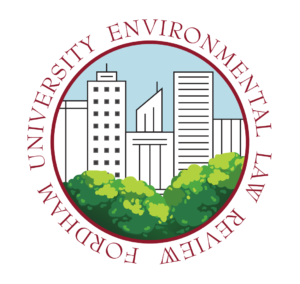Racism Causes Environmental Injustice

“Environmentalism has to be broadened to incorporate organizations and groups that may not necessarily have ‘environment’ in their name.” — Dr. Robert Bullard, Dean of the Barbara Jordan-Mickey Leland School of Public Affairs at Texas Southern University.
Black Lives Matter (BLM) shepherded the national conversation to police brutality. The Fordham Environmental Law Review (ELR) supports BLM. We, the Board of the Fordham ELR, will contribute to that conversation, including and especially regarding reallocating police funding.
Police brutality is a symptom of racism. Economic injustice is a symptom of racism. Environmental injustice is a symptom of racism.
Black neighborhoods are disproportionately affected by environmental injustice. They are the hardest hit. For example, according to a 2012 study by the National Association for the Advancement of Colored People’s (NAACP), Black and Latino families are more likely than White households to live near coal-fired power plants. Black communities are often more vulnerable to drought, heat islands, and extreme weather events, due to a legacy of discrimination from local and national government officials. Police brutalization of black bodies is wrong. Environmental brutalization of black bodies through respiratory diseases, asthma, and various cancers is wrong.
We want to make change. We call on you to view environmental justice as a racial issue. Please consider the Environmental Law Review a forum for academic contributions on this issue.
#blacklivesmatter #RIPRepJohnLewis

